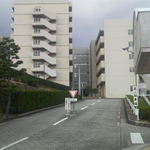Introduction to the University of Tokushima
Overview
The University of Tokushima is a national university located in Tokushima City, Tokushima Prefecture, Japan. It was founded in 1949. The history of the school can be traced back to 1874, when the Tokushima Normal School was established. After several mergers and developments, the University of Tokushima has become a comprehensive university covering multiple disciplines. The University of Tokushima is known for its high-quality education and rich academic resources, especially in the fields of medicine, engineering, and education.
Campus
The main campus of the University of Tokushima is located in Tokushima City, with the following specific addresses:
Hongo Campus: 1-1 Hongo-cho, Tokushima City, Tokushima Prefecture
Tehara Campus: 1-1 Tehara-cho, Tokushima City, Tokushima Prefecture
Educational Philosophy
The educational philosophy of the University of Tokushima is "to respect students' individuality and cultivate talents who master skills, are enterprising, and combine international tracks." The school emphasizes the cultivation of students' independent thinking and practical abilities, and is committed to cultivating high-quality talents with professional knowledge and practical abilities through a comprehensive education system, so as to contribute to the development of society.
Disciplines and Majors
The University of Tokushima has multiple faculties and graduate schools covering a wide range of fields:
Faculty of Education
Education: Learn basic theories and practical methods such as pedagogy and educational psychology, and cultivate professionals who can work in primary and secondary education, educational administration and other fields.
Faculty of Medicine
Medical: Learn basic theories and practical methods such as basic medicine and clinical medicine, and cultivate professional doctors who can work in hospitals, clinics and other fields.
Nursing: Learn basic theories and practical methods such as nursing and clinical nursing, and cultivate professional nurses who can work in hospitals, nursing institutions and other fields.
Faculty of Engineering
Architecture: Learn basic theories and practical methods such as architecture and architectural design, and cultivate professionals who can work in architectural design, urban planning and other fields.
Mechanical Engineering: Learn basic theories and practical methods such as mechanical engineering and mechanical design, and cultivate professionals who can work in mechanical manufacturing and mechanical design and other fields.
Electrical and Electronic Engineering: Learn basic theories and practical methods of electrical engineering and electronic engineering, and cultivate professionals who can work in power systems, electronic equipment and other fields.
Information Engineering: Learn basic theories and practical methods of computer science, information systems and other fields, and cultivate professionals who can work in IT industry, information system development and other fields.
Chemical Engineering: Learn basic theories and practical methods of chemical engineering, materials science and other fields, and cultivate professionals who can work in chemical engineering, materials development and other fields.
Department of Science
Physics: Learn basic theories and practical methods of physics, applied physics and other fields, and cultivate professionals who can work in scientific research institutions, education and other fields.
Mathematics: Learn basic theories and practical methods of mathematics, applied mathematics and other fields, and cultivate professionals who can work in scientific research institutions, education and other fields.
Biology: Learn basic theories and practical methods of biology, ecology and other fields, and cultivate professionals who can work in scientific research institutions, environmental protection and other fields.
Department of Humanities and Social Sciences
Humanities and Social Sciences: Learn basic theories and practical methods of philosophy, history, sociology and other fields, and cultivate professionals who can work in education, cultural promotion and other fields.
Graduate School
Graduate School of Education: Offers master's and doctoral programs in education.
Graduate School of Medicine: Offers master's and doctoral programs in medicine.
Graduate School of Engineering: Offers master's and doctoral programs in engineering.
Graduate School of Science: Offers master's and doctoral programs in science.
Graduate School of Humanities and Social Sciences: Offers master's and doctoral programs in humanities and social sciences.
Featured Courses
Medical: Learn basic theories and practical methods of basic medicine, clinical medicine, etc.
Nursing: Learn basic theories and practical methods of nursing, clinical nursing, etc.
Architecture: Learn basic theories and practical methods of architecture, architectural design, etc.
Mechanical Engineering: Learn basic theories and practical methods of mechanical engineering, mechanical design, etc.
Electrical and Electronic Engineering: Learn basic theories and practical methods of electrical engineering, electronic engineering, etc.
Information Engineering: Learn basic theories and practical methods of computer science, information systems, etc.
Chemical Engineering: Learn basic theories and practical methods of chemical engineering, materials science, etc.
Physics: Learn basic theories and practical methods of physics, applied physics, etc.
Mathematics: Learn basic theories and practical methods of mathematics, applied mathematics, etc.
Biology: Learn basic theories and practical methods of biology, ecology, etc.
Humanities and Social Sciences: Learn basic theories and practical methods of philosophy, history, sociology, etc.
Practical Teaching
The University of Tokushima attaches great importance to practical teaching, with advanced laboratories and practice bases, providing students with rich practical teaching resources. The school has established cooperative relations with many enterprises and research institutions, providing students with rich internship and practice opportunities. The school also has practical platforms such as laboratories, studios, and internship bases, providing students with a platform for practical operation.
International Exchange
The University of Tokushima actively participates in international exchange programs, and has established cooperative relations with universities in many countries, providing students with opportunities for overseas study and exchange. The school has an international student office to provide comprehensive support and services for international students. The school also has English intensive courses and international exchange student programs to help students improve their English level and international competitiveness.
Employment Situation
The University of Tokushima performs well in terms of employment rate. According to the latest statistics, the employment rate of graduates is relatively high. The school has a career guidance center that provides students with employment counseling, resume writing guidance, and interview skills training to help students find jobs smoothly. Graduates have been employed by medical institutions, government agencies, companies, and research institutions.
Costs
Admission fee: approximately 200,000 yen
Tuition:
Approximately 535,800 yen per year (depending on the department and subject)
The specific cost may vary, so it is recommended to contact the school directly for the latest information.
Campus
The campus of Tokushima University is beautiful and well-equipped, including modern teaching buildings, laboratories, libraries, and sports facilities. The school also has student dormitories to provide convenient living conditions for out-of-town students.
Contact information
Tel: +81-88-656-7111
Fax: +81-88-656-7112
Email: info@tokushima-u.ac.jp
Other information
Internship opportunities: The school has established cooperative relationships with many companies and research institutions, providing students with abundant internship and practical opportunities.
Employment support: The school has a career guidance center to provide students with employment consultation, resume writing guidance, interview skills training and other services to help students find employment smoothly.
Scholarship system: The school has a variety of scholarship systems to help students reduce their financial burden.
-
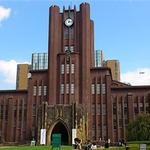
The University of Tokyo
-
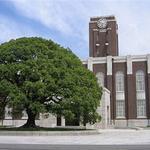
Kyoto University
-
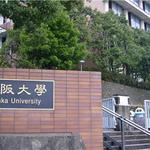
Osaka University
-
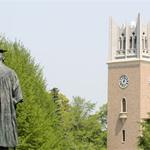
Waseda University
-
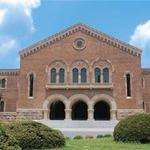
Hitotsubashi University
-
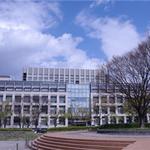
Nagoya University
-
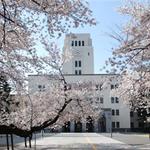
Tokyo Institute of Technology
-
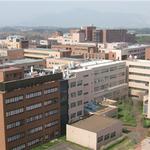
University of Tsukuba
-

Keio University
-
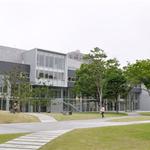
Tohoku University
-

Mesoamerican University
-

Istmo University
-

Mariano Galvez University of Guatemala
-

Regional University of Guatemala
-

Galileo University
-

Francisco Marroquín University
-

Rafael Landívar University
-

University of the Valley of Guatemala
-

University of San Carlos of Guatemala
-

Technological Institute of Tlaxcala Plateau
-

Golfo University
-

Technological University of South Sonora
-

Technological University of Huejotzingo
-

Tizimín Institute of Technology
-

Chilpancingo Institute of Technology

